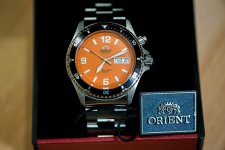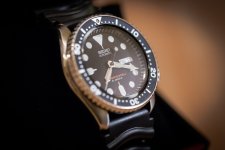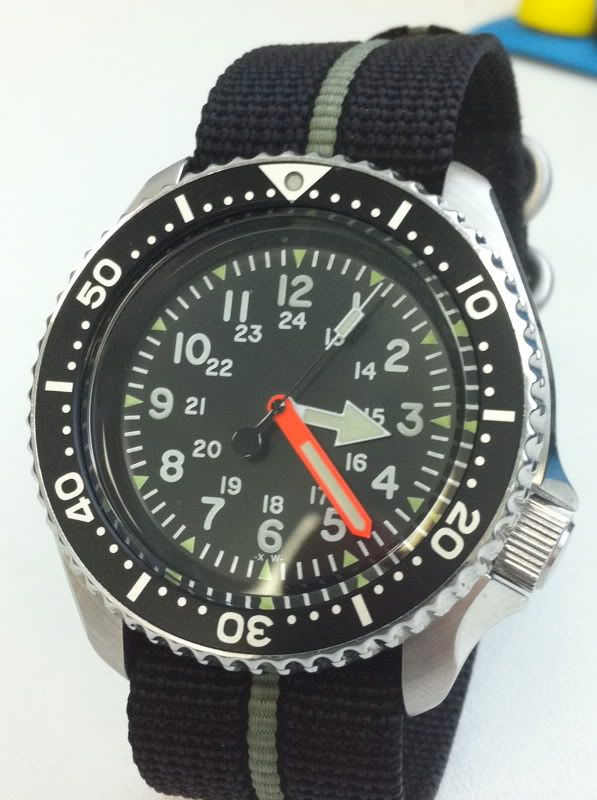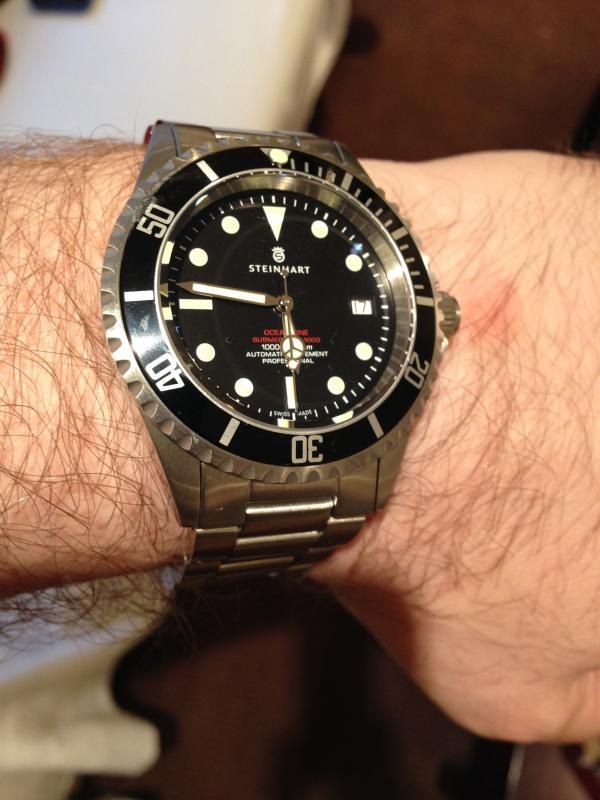You can get a Platinum Seiko for about £800, automatic too.
http://www.creationwatches.com/prod...r15-titanium-automatic-sbdc007-200m-1742.html
As I said, the truth is the brand name and heritage play a BIG part. A Rolex at £23,000 isn't 30 times better built than a £700 Seiko (await someone point out it is Hardex Crystal or it goes deeper underwater), it isn't 30 times more accurate. One might argue the Rolex will hold its value or go up (as with any investment, it's a risk), but with the same argument the most you will lose with a Seiko is £700, which is pittance in comparison and who cares if you lose £700 when you have another £22,300 left in the bank for some other proper investment?

I mean if people want to use invesetment as a reason to buy a watch, there are much better things to invest than watches.
I am willing to openly admit that if I ever buy a Omega and Rolex, it is because of bragging rights and nothing else. Because any other reason I am lying to myself. Lets face it, if I want accuracy I buy a Quartz. If I want to invest my money, it certainly won't be in watches.
I like to think buying these watches at thounsands is akin to buying designer handbags at £5,000. Do they hold the purse any secure? Did the cow it come from have better DNA? A £5,000 handbag is more expensive because it is made in Italy as opposed to China. It is also because of the logo glued/stitched to the front of it.
It's a fashion accessory.
We can all have the Swiss thanked for this really (SWATCH Group), because before Quartz came along, watches were seen as an object for its function, not as an object for its desirability. Quartz when it first came out was expensive, the first ever Seiko Quartz costs in thousands in today's money, it wasn't until Casio's mass market penatration that drove the price down (as with all electronic, prices will come down). A Quartz is more accurate than your automatic (more accurate is better) and because it was new to the market people wanted it because of the novelty, a new way to tell time, and in the 70's and 80's, digital was cool (even in music, remember that sound?), digital front watches was everywhere, old mechanical watches was dead in the water and the Swiss had to do something to save its industry. So the only way was to market it as a lifestyle object, an object of desire, a move away from an object of function. It can do that because it is mechanical and that is its marketing starting point. So once it moved to that platform, you can basically charge for what you want since people will pay for nicer things, luxury objects. People would pay stupid amount for a antique china bowl because it is old. The only difference is that said bowl would be one of a kind and 2,000 years old but you can't say the same about a £20,000 Rolex, there is many of them around and nothing to stop the company knocking out many more, time after time.
That's how I see the whole watch thing.


 )
) Very disappointing but did not put me off completely. No company is perfect.
Very disappointing but did not put me off completely. No company is perfect.








